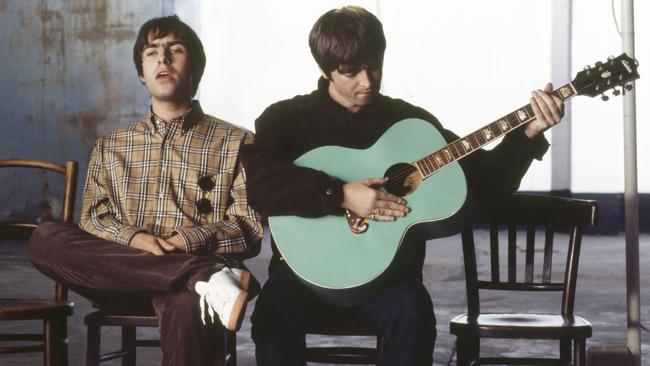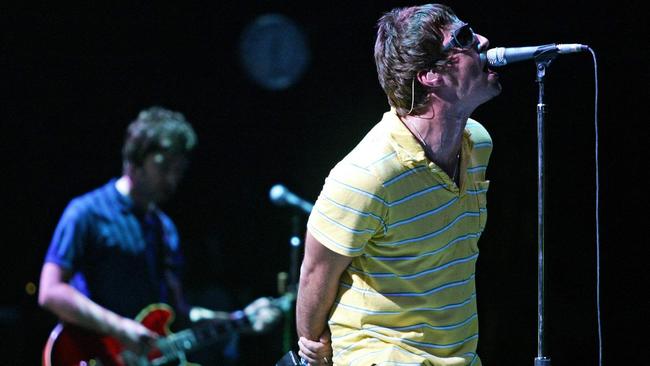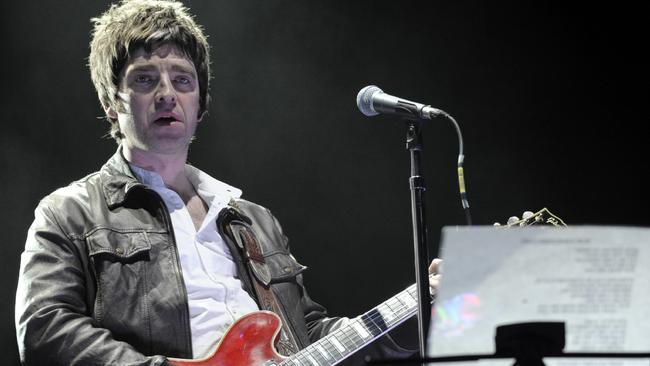Reason Oasis Australian ticket sales sparked decision to put on fifth new show in Melbourne
Veteran concert promoter Michael Coppel shares how the Oasis tickets rolled out for their Australian shows.
Music
Don't miss out on the headlines from Music. Followed categories will be added to My News.
The promoter of the Oasis Live ‘25 reunion tour wrangled a fifth show for their Australian tour out of the Gallagher brothers.
Ticketmaster advertised low availability at the Melbourne shows in the hours after they went on sale at 10am on Tuesday.
The two Sydney concerts only had low availability of tickets 90 minutes after they went on sale at midday.
Live Nation announced the fifth show 90 minutes after the Sydney concerts went on sale to satisfy pent-up demand to see the British rockers back together.
“They’re booked to go to Japan after Sydney so there’s no extending on to other States. We offered them the opportunity of doing (shows) in other states but they didn’t want to take that up; they were happy just to be doing Melbourne and Sydney.
“There are 10 shows in North America and now five shows at the moment in Australia; we’ve done pretty well.”

The Oasis tickets went on sale after ABC’s Four Corners report on Live Nation’s operations in Australia which neglected to point out most major Australian tour companies are partly or fully owned by multinational companies.
Coppel said the touring market has changed significantly post Covid and artists now want to book global tours rather than separate runs in each market in the US, UK, Europe and Oceania, including Australia and New Zealand.
“This has become a globalised business. It’s not just an Australian music market, it’s a world market, and it’s become such a high risk, highly leveraged, intensive capital business that if you don’t have a major company with the resources, you don’t have a touring industry,” he said.
“Look at Oasis. The reason Oasis came back together is Live Nation could deliver them a world tour with a guarantee financial outcome that makes it attractive and give them the UK, North America, Australia and Japan, not individual negotiations. It will be as easy as possible.”

Coppel said he and the band’s management spent four hours on a video conference monitoring the pre-sale on Monday where 170,000 tickets went within a couple of hours.
While some fans complained on glitches which booted them out of the queue when they went to complete purchases, Coppel said “it went as smoothly as anything I’ve ever seen.”
The pre-sale, which offered about 80 per cent of the tickets available for the first four concerts on sale was accessed by fans who registered for a code via the artist website.
Coppel said there are restrictions around how many tickets can be offered in pre-sales if they are a “closed” pre-sale offered by a telco, credit card or other corporation that require you the purchaser to have “membership.”

When asked if a fan has a better shot at buying tickets during a pre-sale, Coppel said it depends on the artist and their management’s carve-up of the allotment.
“The ACCC has a rule that if you have a closed pre-sale, you can only sell 30 per cent of the inventory, something like a Visa or Amex pre-sale where you have to have a membership,” he said.
“It was different with Oasis because you could apply for a code for the pre-sale and Ticketmaster vetted the applications to try to get rid of known scalpers, multiple registrations or anyone trying to game the system.
“I know a lot of people missed out on the code for reasons I can’t figure out either because they qualified and there was nothing adverse against their application, so maybe it was randomised and there was a finite number of codes offered.
“If they miss out on that, they go to the general sale. So most tours give you at least two shots at tickets.”
Coppel said the highest priced A- Reserve ticket, which wasn’t part of a VIP package, was $399 plus booking fee, with front and rear general admission tickets and B Reserve for $299, down to D Reserve tickets for $179.
The promoter said the “hidden” charges referred to in the Four Corners story have been part of the full ticket price since 1989.





